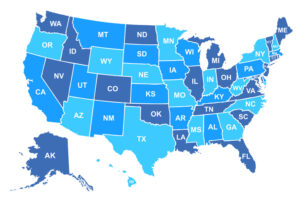What States Are Doing to Keep People Covered as Medicaid Continuous Coverage Enrollment Unwinds

Several state-based Marketplaces have deployed innovative programs to keep people covered during the Medicaid unwinding. In their latest post for the Commonwealth Fund, CHIR’s Rachel Swindle and Sabrina Corlette assess the status of these programs and discuss the urgent need for more timely and accurate data on people transitioning from Medicaid to other forms of coverage.





